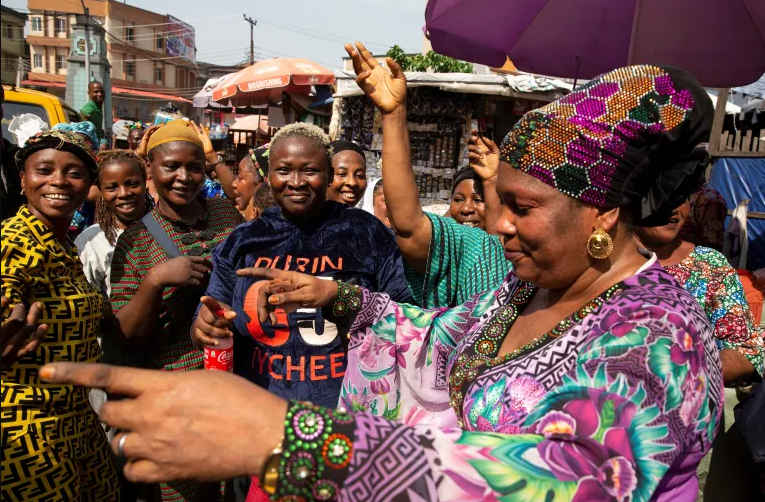A recent court judgement granting fiscal autonomy to Nigeria’s 774 local government councils has continued to elicit praise from the chattering class. The seven-man panel, led by Justice Garba Lawal, delivered the ruling on Thursday, July 11.
The local government, which is the closest tier of government to the people, has for years been weakened by undue influence from state governors. While the 1999 constitution puts local governments in charge of refuse disposal, primary healthcare, registration of birth, death and marriage, among other duties, state governors over the years have usurped these roles through “caretaker committees.” This hegemony by state governments has been largely aided by the joint account model, which allows for monthly revenues from the federal government to be disbursed to the state and local governments through the same account. Yet the funds are rarely allotted to the last tier by the state governments.
Until the Supreme Court ruling, 63.17% of Nigeria’s LGAs were governed by caretaker committees, according to an investigation by The Guardian. Between June 2023 and May 2024, these caretaker committees received N1.68 trillion in federal allocation, yet none of the funds trickled down to the 489 LGAs, where these committees hold sway. State governors have been known to maintain a tight pull on these illegal caretaker committees, resisting calls for democratically held elections for their local government councils. In several Nigerian states, democratic polls for local government councils have not been held for over a decade.
In the eastern state of Anambra, for example, local councils have been headed by caretaker committees since at least 2014. Similarly, in the north-central state of Kwara, caretaker committees have headed local government councils since 2012. The state government has, however, scheduled local council elections for September this year.
This subversion of independence by state governments has inevitably led to the diversion of funds earmarked for local administration, stifled local governance and inhibited grassroot development. Waste management, for example, which exists within the local government council’s purview, is managed by the state governments. This is seen in the various refuse-disposal agencies that abound in every state. Lagos State Waste Management Agency offers a prime example.
Several governors have expressed their grudging acceptance in the wake of last week’s ruling, inaugurating committees to handle the council elections. Yet some have flayed the Supreme Court’s decision as a “distraction” from the more contentious troubles afflicting the country.
Still, the apex court’s landmark judgement offers a new lease of life to local governments, revamping Nigeria’s checkered democracy. Allocations to local governments will thus be paid directly from the Federation Account to councils governed by democratically elected officials. As such, elections into offices within the third tier of government will get more competitive as more candidates join the race. Given that the local government is closest to the people, the dividends of democracy will be especially felt at the grassroots.
This new-found fiscal independence of the local governments may likely create problems of godfatherism and political violence, crises that are visibly manifested in the other tiers of government. Conflict over public funds is also another problem that is likely to arise between officeholders at the local government level. To scuttle this, the national assembly can create new laws to put the power of the elected local government officials in check.
Until then, the National Assembly has to ensure that INEC, Nigeria’s electoral body, conducts equal and transparent elections for the 774 LGAs quickly and promptly.
A recent Supreme Court judgement in Nigeria has granted fiscal autonomy to the country's 774 local government councils, a decision welcomed by many. The ruling was delivered by a seven-man panel led by Justice Garba Lawal on July 11. This judgement addresses the long-standing issue of undue influence by state governors, who, via "caretaker committees," have controlled local governments and diverted funds meant for local administration.
The 1999 Constitution assigns local governments responsibilities such as waste disposal, primary healthcare, and civil registrations. However, the joint account model has allowed state governments to withhold funds, stifling local governance. Reports indicate that a significant portion of local governments were governed by caretaker committees that did not allow for the funds to reach the local councils.
State governors, while reluctantly acknowledging the Supreme Court's decision, have begun establishing committees for forthcoming local council elections. Some, however, consider this ruling a distraction amid national issues. The ruling mandates that local government funds be paid directly to councils governed by democratically elected officials, which could lead to more competitive elections and enhanced grassroots development.
Despite the potential for positive change, concerns remain about possible issues like political violence and conflicts over public funds. To mitigate these, the National Assembly may need to enact new laws to regulate the powers of local government officials. It is crucial for INEC, Nigeria’s electoral body, to conduct fair and prompt elections for the local governments to ensure the proper implementation of this ruling.






